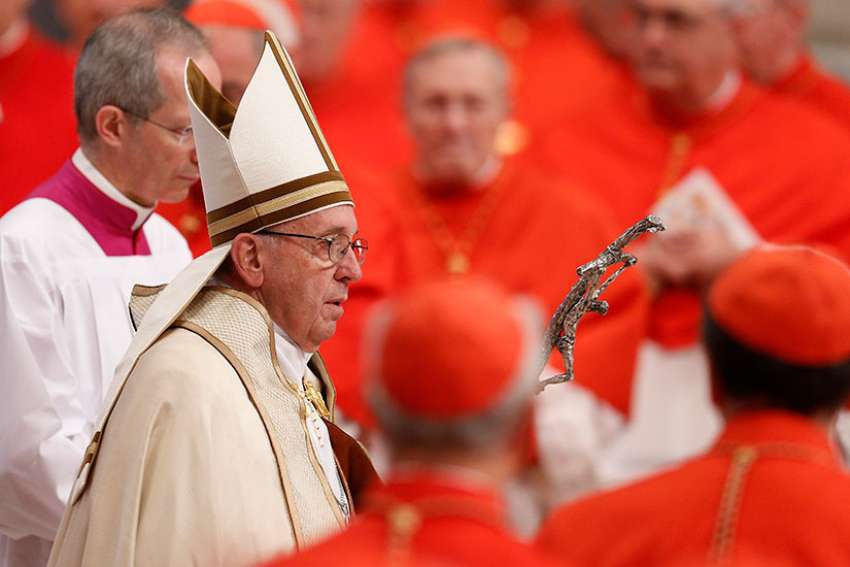That trend will be emphasized June 28 when Francis creates five new cardinals. Four of them will come from small nations that have never before sent a member to the red-hat club.
As we’ve written before, making the College of Cardinals more diverse is a positive development. The 21st-century Church leadership should be less European and, in particular, less Italian. In that respect, there is still much to be done. Even after the latest additions, Europe will still have 51 of the 121 cardinals eligible to vote in a papal conclave, and 47 per cent of the Europeans will be Italian.
Francis deserves credit for expanding the Church’s reach, but he also seems mindful of the tradition of an Italian-heavy College of Cardinals. With 24 cardinals under the age of 80, and therefore eligible to vote for the next Pope, Italy still far outnumbers all of Asia (14), Africa (14), North America (13) and South America (12).
Francis has named seven of those voting Italian cardinals. Meantime, he has created seven new cardinals for all of Asia, and seven more for all of Africa, which is one more than he has created in either North or South America.
So if the plan is to reduce the Italian representation, Francis is working methodically, even as Italy’s practising Catholic population declines amid a boom in the Southern hemisphere. Still, under Francis the College has become less Euro-centric. That is worth noting. Change has never come quickly or easily at the Vatican.
When Francis became the first non-European pope in almost 1,300 years, 52 per cent of voting cardinals were European. If a papal vote were held today, Europeans would cast 42 per cent of the votes. That’s progress.
The globalization agenda has seen Francis cast a wide net. With the new additions from Sweden, El Salvador, Laos and Mali, he’ll have given 13 nations their first-ever cardinals. Francis promised to go to the peripheries, to remote dioceses in “diverse parts of the world” where Catholics are a minority, and that’s what he’s done, naming first-time cardinals from Cape Verde, Myanmar, Tonga, Laos, Mali, Bangladesh, Central Africa Republic, Malaysia and Papua New Guinea.
His appointments suggest an objective to mould a Church that is more pastoral, more culturally diverse and more reflective of the poverty, suffering, exclusion and conflict that pervades much of the planet.
Being made a cardinal, Francis says, is not a promotion, but an invitation to “broaden your gaze and open your hearts.” The Pope seems to follow his own advice — to be more broad and more open — as he selects leaders for the Church.


